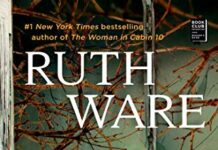
Ebook Info
- Published: 2006
- Number of pages: 288 pages
- Format: Epub
- File Size: 0.25 MB
- Authors: Jeannette Walls
Description
The Glass Castle is a remarkable memoir of resilience and redemption, and a revelatory look into a family at once deeply dysfunctional and uniquely vibrant. When sober, Jeannette’s brilliant and charismatic father captured his children’s imagination, teaching them physics, geology, and how to embrace life fearlessly. But when he drank, he was dishonest and destructive. Her mother was a free spirit who abhorred the idea of domesticity and didn’t want the responsibility of raising a family.
The Walls children learned to take care of themselves. They fed, clothed, and protected one another, and eventually found their way to New York. Their parents followed them, choosing to be homeless even as their children prospered.
The Glass Castle is truly astonishing—a memoir permeated by the intense love of a peculiar but loyal family.
The memoir was also made into a major motion picture from Lionsgate in 2017 starring Brie Larson, Woody Harrelson, and Naomi Watts.
User’s Reviews
Amazon.com Review Jeannette Walls grew up with parents whose ideals and stubborn nonconformity were both their curse and their salvation. Rex and Rose Mary Walls had four children. In the beginning, they lived like nomads, moving among Southwest desert towns, camping in the mountains. Rex was a charismatic, brilliant man who, when sober, captured his children’s imagination, teaching them physics, geology, and above all, how to embrace life fearlessly. Rose Mary, who painted and wrote and couldn’t stand the responsibility of providing for her family, called herself an “excitement addict.” Cooking a meal that would be consumed in fifteen minutes had no appeal when she could make a painting that might last forever. Later, when the money ran out, or the romance of the wandering life faded, the Walls retreated to the dismal West Virginia mining town — and the family — Rex Walls had done everything he could to escape. He drank. He stole the grocery money and disappeared for days. As the dysfunction of the family escalated, Jeannette and her brother and sisters had to fend for themselves, supporting one another as they weathered their parents’ betrayals and, finally, found the resources and will to leave home. What is so astonishing about Jeannette Walls is not just that she had the guts and tenacity and intelligence to get out, but that she describes her parents with such deep affection and generosity. Hers is a story of triumph against all odds, but also a tender, moving tale of unconditional love in a family that despite its profound flaws gave her the fiery determination to carve out a successful life on her own terms. For two decades, Jeannette Walls hid her roots. Now she tells her own story. A regular contributor to MSNBC.com, she lives in New York and Long Island and is married to the writer John Taylor. An exclusive Q&A with Jeannette Walls, author of The Glass Castle Q: How long did it take you to write The Glass Castle and what was that process like? A: Writing about myself, and about intensely personal and potentially embarrassing experiences, was unlike anything I’d done before. Over the last 25 years, I wrote many versions of this memoir — sometimes pounding out 220 pages in a single weekend. But I always threw out the pages. At one point I tried to fictionalize it, but that didn’t work either. When I was finally ready, I wrote it entirely on the weekends, getting to my desk by 7:30 or 8:00 a.m. and continuing until 6:00 or 7:00 p.m. I wrote the first draft in about six weeks — but then I spent three or four years rewriting it. My husband, John Taylor, who is also a writer, observed all this approvingly and quoted John Fowles, who said that a book should be like a child: conceived in passion and reared with care. Q: How did you decide to follow The Glass Castle with Half Broke Horses? A: It was completely at the suggestion of readers. So many people kept saying the next book should be about my mother. Readers understood my father’s recklessness because they understood alcoholism, but Mom was a mystery to them. Why, they would ask, would someone with the resources to lead a normal life choose the existence that she did? I would tell them a little bit about my mother’s childhood. She not only knew that she could survive without indoor plumbing, but that was the ideal period of her life, a time that she tries to recreate. I think that for memoir readers, it’s not about a freak show– they’re just looking to understand people and get into a life that’s not their own. I thought, let me give it a shot, let me ask Mom. And she was all for it. But she kept insisting that the book should really be about her mother. At first I resisted because my grandmother, Lily Casey Smith, died when I was eight years old, more than 40 years ago. But I have a very vivid memory of this tough, leathery woman; she sang, she danced, she shot guns, she’d play honky tonk piano. I was always captivated by her. Lily had told such compelling stories—I was stunned by the number of anecdotes, and that Mom knew so much detail about them. Half Broke Horses is a compilation of family stories, stitched together with gaps filled in. They’re the sort of tales that pretty much everyone has heard from their parents or grandparents. I realized that in telling Lily’s story, I could also explain Mom’s. Q: Why did you decide to write Half Broke Horses in the first person, and how much of this “true-life novel” is fiction? A: I set out to write a biography of Lily, but sometimes books take on a life of their own. I told it in first person because I wanted to capture Lily’s voice. I’m a lot like my grandmother, so it came easily to me. I planned to go back and change it from first person to third person and put in qualifiers so the book would be historically accurate, but when I showed it to my agent and publisher, they both said to leave it as it is. By doing that, I crossed the line from nonfiction into fiction. But when I call it fiction it’s not because I tarted it up and tried to embellish things, but wanted to make it more readable, fluid, and immediate. I was trying to get as close to the truth as I could. Q: How has your relationship with your mother changed in recent years? A: Several years ago, the abandoned building on New York’s Lower East Side where Mom had been squatting for more than a decade caught fire and she was back on the streets again at age 72. I begged her to come live with me. She said Virginia was too boring, and besides, she’s not a freeloader. I told her we could really use help with the horses, and she said she’d be right there. I get along great with Mom now. She’s a hoot. She’s always upbeat, and has a very different take on life than most people. She’s a lot of fun to be around — as long as you’re not looking for her to take care of you. She doesn’t live in the house with us– I have not reached that level of understanding and compassion– but in an outbuilding about a hundred yards away. Mom is great with the animals, loves to sing and dance and ride horses, and is still painting like a fiend. Q: What do you hope readers will gain from reading your books? A:Since writing The Glass Castle, so many people have said to me, “Oh, you’re so strong and you’re so resilient, and I couldn’t do what you did.” That’s very flattering, but it’s nonsense. Of course they’re as strong as I am. I just had the great fortune of having been tested. If we look at our ancestry, we all come from tough roots. And one of the ways to discover our toughness and our resiliency is to look back at where we come from. I hope people who read The Glass Castle and Half Broke Horses will come away with that. You know, “Gosh, I come from hearty stock. Maybe I’m tougher than I realize.” From School Library Journal Gr 9 Up-Growing up in rural Appalachia in extreme poverty, Walls (a former journalist and recognized author) and her siblings had to fend for themselves, supporting each other as they weathered their parents’ wildly erratic and dysfunctional behavior. She presents an objective portrait of her circumstances that is both poignant and forgiving. Audio version available from S & S Audio.α(c) Copyright 2013. Library Journals LLC, a wholly owned subsidiary of Media Source, Inc. No redistribution permitted. Review “Walls has joined the company of writers such as Mary Karr and Frank McCourt who have been able to transform their sad memories into fine art.” ― People”Walls has a God-given knack for spinning a yarn, and The Glass Castle is nothing short of spectacular.” ― Entertainment Weekly”Extraordinary.” ― Time”Each memory is more incredible than the last… That Walls recounts them so well and in such detail is our good fortune.” ― The Plain Dealer”On the eighth day, when God was handing out whining privileges, he came upon Jeannette Walls and said, ‘For you, an unlimited lifetime supply.’ Apparently, Walls declined His kind offer.” ― Chicago Tribune”Charles Dickens’s scenes of poverty and hardship are no more audacious and no more provocative than those in the pages of this stunning memoir.” ― The Atlanta Journal-Constitution”Some people are born storytellers. Some lives are worth telling. The best memoirs happen when these two conditions converge. In The Glass Castle, they have.” ― New York Newsday”The Glass Castle is the kind of story that keeps you awake long after the rest of the house has fallen asleep.” ― Vogue”The Glass Castle is nothing short of spectacular.” ― Entertainment Weekly
Reviews from Amazon users, collected at the time the book is getting published on UniedVRG. It can be related to shiping or paper quality instead of the book content:
⭐ I began to doubt the truth of this memoir when she referred to Fish Creek Canyon, Arizona, as being West of Bullhead City. The only state West of Bullhead City is Nevada and Fish Creek Canyon is far to the East in the Superstition Mountains near Phoenix Arizona. Sloppy work. Where is the publisher’s fact-checker? If one writes about place and from place they need to know what they are talking about. I also found her descriptions of the desert generic. The Sonoran is not the northern basin-range.
⭐ I just love this story about growing up dirt poor in one of the poorest and most depressing coal mining towns in West Virginia. I am a West Virginian, and there were many poor and alcoholic coal miners in my family, so I can really relate to the struggles this family faced. Ms Walls does an excellent job of telling her story so the reader feels like they were there. I could feel her pain, anger and disappointment to the point that I shed tears more than once. I read the book shortly after it was published, and just read it again after seeing the movie, which was also excellent. This book is easily one of my top five best books ever.
⭐ Excellent description of places, excellent representation of how people speak, excellent presentation of the children’s growing maturity and awareness. The author writes with compassion for her parents, but as a reader this book made me angry over and over as the adults indulged themselves with selfishness, immaturity, and alcoholism, leaving themselves and their children hungry and cold and the children haphazardly educated, even molested. The children’s transition from a life of abject poverty to new lives in New York City is painted with broad strokes, and I can’t help thinking there’s another book in there. They would have had to learn how to live as adults in an urban environment, how to relate to people differently, how to see themselves as something other than the bottom of the social structure. When the author presents the scene in which she learns that her mother actually had a substantial amount of money – a fact that is hinted at throughout the book – and fully understands that none of it had to happen, she handles it without anger. The closing scene with its repetition of the image, “dancing along the border between turbulence and order,” is satisfying.
⭐ I think this may be the best book I’ve ever read. I’m 60, and I read A LOT. The character Mary, in this book, at one point says she is addicted to reading. When I’ve told people that, they act like it’s a joke. This book had me back and forth, from nodding in agreement with the sage parental advice given to the Walls children about Life…then freaking out over a little girl falling out of a moving vehicle and they don’t even know it right away! In the beginning of the story the dad spends quality time with his children. They have adventures most kids couldn’t dream of. Then he drinks up the grocery and electric bill money. The mother is ahead of her time in lots of ways. She is also neglectful and self absorbed— in shocking ways. It’s because of the many reality checks that I didn’t doubt for a minute, memoir or not, that this is a true life story. It was a very funny book. My favorite Rex Walls story was him fixing the termite ridden floor by smashing beer cans and nailing them over the holes. “Time to go her another six pack”. (There were holes left to patch). Drink a beer, patch a hole..repeat. His best line, for me, was when he is telling his daughter about quantum physics and rethinking his atheist perspective. He holds up his DT shaking hand for some reason and tells her he doesn’t know if it’s “fear of God or lack of booze”. I thought maybe the author was being a little too careful going easy on her parents—some parts of the book were heart breaking to read. In the end, though, I’m glad she left it to the reader to decide, and thank GOD it wasn’t a “poor me” story! It was just realer than real, with the opportunity, should you choose to take it, to feel hope and optimism. To believe we are right to have hope. And a job.
⭐ Boring , boring , boring: a life with irresponsible and silly parents. I regret every cent. Could not read all, some spotty reading and eventually stashed it away.
⭐ This book was disturbing and depressing. I had hoped that the author would share some sort of insight into surviving neglect and abuse, but I sensed a sort of “top this” arrogance in her writing. She described her childhood as an adventure. Her recounting was emotionless. This is not a book that will help survivors of abuse. Perhaps it is for those who never experienced such hardship and find it fascinating. I read a few chapters. Now I am deciding whether to put this book on the shelf or simply throw it in the fire.
⭐ This was a memorable and troubling story written from a child’s perspective (my favourite kind of story). Folks are commenting that Jeannette did not judge or condemn her parents for their miserable failings. What I suspect is simply that she was highly intelligent and had keen insight into their psychology and knew, on a deeper level than most children, they were “doing the best they could” in a sense. Only she knows what is in her heart. I got the sense she accepted and saw reality clearly. Her zest for life, insatiable curiosity and hopeful-ness in spite of her parents’ failings made her a rare exception among people who are raised in such a way, in my opinion. What I admire most about her is that she never gave up and resigned herself or allowed what was clearly abnormal to become normal.
⭐ Jeannette Walls’s memoir focuses on her dysfunctional family life with a severely alcoholic father and an irresponsible dreamer of a mother. The poverty they experience is absolutely wrenching. Yet through it all, Jeannette and her siblings emerge as responsible successful adults in overwhelmingly difficult circumstances. It’s a quick, wonderful read.
⭐ Reads as if written by a teenager. Many incidences described are unbelievable. I know memories are not the same as biography but this Seems like pure fiction to me but poorly written. If a very fast but simplistic read is what you want, you’ve found it.
⭐ What is brilliant about Ms. Walls’ book is that she expertly blurs the lines between what are legitimate lifestyle choices and abusive or neglectful parents. Most of modern society would quickly label her parents as incapable of raising children, minimally calling their practices neglectful, and aggressively calling them child abusers. Yet, when you think about it, their upbringing would be considered quite “normal” in the 1800s. Other than the cheetah episode (I won’t give it away), did the parents actually do anything to endanger the children? In the end, did they survive and even thrive?This book also clearly and fairly shows the disastrous, destructive, and dysfunctional effects of alcoholism on a family. All too often, children raised in those environments become the adults in the family and run the household, as is the case here. But in Wall’s book, she balances the destruction caused by alcohol with deep love, loyalty, and faith in her parents…until she cannot accept it anymore. Again, she pushes real human relationships, love, interaction, and family balance to the limits. Brilliant.And then there’s the oddity: I did not detect one single editorial error. Not one typo. Not one grammar error. That is so rare in modern publications. Kudos to the editorial staff.I would say to Ms. Walls thank you for letting us into your reality. All of us found bits and pieces of our own lives through your story, to varying degrees. You pushed what is “normal” to the edges of acceptability in today’s society, and you explained how every kid’s “normal” is precisely that, until they have another frame of reference with which to compare their own.
Keywords
Free Download The Glass Castle: A Memoir in Epub format
The Glass Castle: A Memoir Epub Free Download
Download The Glass Castle: A Memoir 2006 Epub Free
The Glass Castle: A Memoir 2006 Epub Free Download
Download The Glass Castle: A Memoir Epub
Free Download Ebook The Glass Castle: A Memoir





